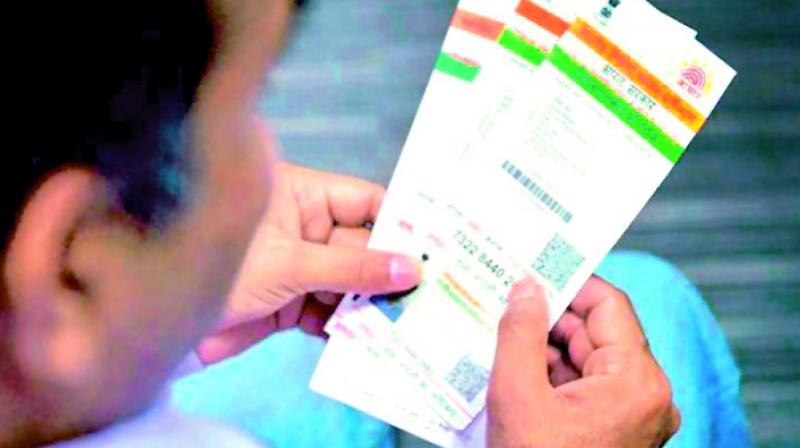Supreme Court upholds Aadhaar but with riders
SC rules authentication data not to be stored for more than six months.

New Delhi: The Supreme Court on Wednesday, in a majority verdict, held that the Aadhaar (Targeted Delivery of Financial and Other Subsidies, Benefits and Services) Act, 2016, is constitutionally valid, but made it clear that a person’s rights cannot be denied on the ground of lack of the unique ID.
A Constitution Bench of Chief Justice Dipak Misra and Justices A.K. Sikri, A.M. Kanwilkar, D.Y. Chandrachud and Ashok Bhushan by a majority of 4:1 in a 1,448 judgment upheld linking of PAN with Aadhaar, and made it must for filing income tax returns and for receiving benefits drawn from the Consolidated Fund of India. But it set aside linking Aadhaar to bank accounts and mobile phone numbers.
Aadhaar is however must for availing facilities of welfare schemes and government subsidies as it empowers the poor and marginalised. The Court has made exception for children saying that no child can be denied benefits of any scheme if he or she doesn’t have Aadhaar card.
It struck down Section 57 of the Aadhaar Act as “unconstitutional”. This means that no company or private entity can seek Aadhaar identification. Further the authentication done by private parties while verifying Aadhaar could not be stored by the UIDAI beyond six months, as the existing time limit of five years.
While Justice Sikri wrote for himself, CJI and Justice Kanwilkar, Justice Bhushan gave a concurring decision and Justice Chandrachud gave a dissenting verdict and declared the Aadhaar law as unconstitutional.
Justice Sikri said obtaining Aadhaar card would continue to remain voluntary with an option to exist. It is better to be unique than the best. Because, being the best makes you the number one, but being unique makes you the only one.” He added that the Aadhaar number, given to a particular individual, is treated as unique and cannot be assigned to any other person.
The court ruled that Aadhaar would also not be mandatory for school admissions, as also for the examinations conducted by the Central Board of Secondary Examination, National Eligibility cum Entrance Test (NEET) for medical entrance and the University Grants Commission. Aadhaar, however, would remain mandatory for filing of IT returns and allotment of Permanent Account Number (PAN).
The bench also struck down the national security exception under the Aadhaar (Targeted Delivery of Financial and other Subsidies, Benefits and Services) Act, 2016. Under this provision the government had the power to share Aadhaar data citing security considerations, which has now been held illegal.

